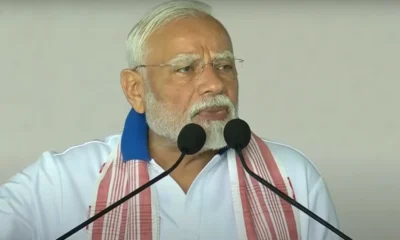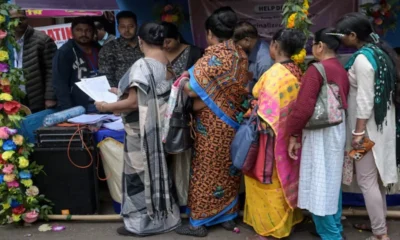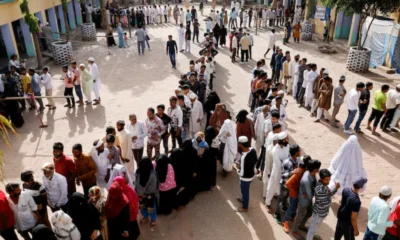Gujarat High Court on Friday, Feb 23, issued notices to the Election Commission of India and BJP leaders on petitions challenging the results of recently held Assembly elections, said media reports.
Apart from Congress leaders, there are leaders from the Nationalist Congress Party (NCP) and the Indian National Dal also who have challenged the results.
The high court has sought reply next month, said advocate Rahul Sharma who is representing the Congress party candidates, The Times of India reported.
In all, more than 20 Congress leaders who lost by narrow margins in the recently held Assembly elections, have moved the High Court asking for direction to the Election Commission of India to count voter verifiable paper audit trail (VVPAT) slips which were not considered while pronouncing the results, said a report in The Indian Express.
Besides, one of the petitioners from Santrampur has contested that the BJP leader who won the polls overspent during the campaign, said the IE report.
Among the petitioners are Dhirajlal Madhavjibhai Kalathiya, who lost Botad Assembly seat to current state energy minister Saurabh Patel by a margin of 906 votes, former Gujarat Congress chief Arjun Modhwadia from Porbandar, Sidharth Patel from Dabhoi (Vadodara), Mahendrasinh Baraiya from Prantij (Sabarkantha), Suleman M Pate from Bharuch, Rajendra B Parmar from Godhra and Nathabhai Patel from Vijapur.
Most of these candidates lost election by the margin of less than 3,000 votes.
On Wednesday, Justice J B Pardiwala recused himself from hearing the petition moved by Siddharth Patel.
Modhwadia told The Indian Express, “We have sought the counting of VVPAT on the basis of provisions. There are guidelines that along with Electronic Voting Machines, paper trail slips can also be counted. Since 2013, there are provisions that if a candidate demands, VVPAT should be counted. We had demanded but it was not done and therefore the petitions have been moved.” Modhwadia lost to BJP candidate by a margin of only 1855 votes.
“There are a number of discrepancies in the counting of votes. We have highlighted that in the petition. Basically, we are demanding the counting of VVPAT slips. Besides, there are several rules which have not been followed by the Election Commission,” said advocate Mehul H Rathod, who is appearing for Kalathiya.
Congress candidate Ashwin Rathod has challenged the victory of education minister Bhupendrasinh Chudasama from Dholka. He stated in the plea that more than 400 postal ballot votes were cancelled by the Returning Officer in Dholka constituency without assigning any reason, said a report in Ahmedabad Mirror. The victory margin is less than the cancelled votes and hence if the votes are considered, the result would be different.
In the hard fought Gujarat Assembly elections held in December 2017, on at least 15 seats the BJP beat the Congress by a margin of less than 3,000 votes. The seat with the narrowest margin was Godhra, where BJP candidate C K Raulji beat Rajendrasinh Balvantsinh of Congress by 258 votes.
Seats named in pleas (from Ahmedabad Mirror):
1 Jamalpur- Khadia
2 Dholka
3 Danilimda
4 Patan
5 Gandhinagar North
6 Botad
7 Himmatnagar
8 Prantij
9 Varachha Road
10 Kamrej
11 Gariadhar
12 Limbayat
13 Godhra
14 Santrampur
15 Mandvi, Kutch
16 Porbandar
17 Vagra
18 Matar
19 Dabhoi
20 Devbhumi Dwarka






















